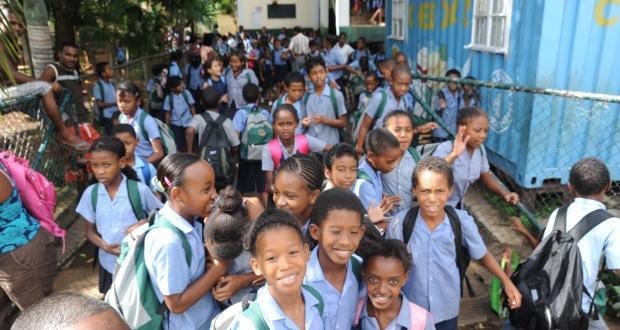The education of girls and young women should cease to be an eristic matter subject to controversy or disputation. The African Renaissance can only be built on the conviction that the story of African girls and young women should no more be narrated sotto voce.

The Minister of Education and Human Resources, Tertiary Education and Scientific Research, Mrs Leela Devi Dookun-Luchoomun, made this statement this morning at the launching of a Forum on Strategies for retention of girls and young women in educational systems, at the Intercontinental Hotel, in Balaclava.
The forum is conducted by a panel of resource persons from the AU, CIEFFA, UNESCO, WomHub, and UNICEF. Some 70 foreign delegates and 50 Mauritian participants are attending.
In her opening address, the Minister Dookun-Luchoomun, spoke of the need for leveraged actions so that both, boys and girls have the possibility to be active participants in fashioning the destiny of our countries.
Mauritius fully subscribes to the idea that any theme that places girls and young women at centre stage should sit high on the national agenda, she said.
Mauritius has made considerable progress in terms of access of girls to education, equity of treatment and inclusion. In Mauritius, we hardly need to talk of retention when girls are known to outperform boys and are self-motivated enough to pursue their education path to the hilt, she said.
Mrs Dookun-Luchoomun enumerated some factors that contribute to this fact namely, the advantage of being a small country with a declining population; and the powerful demand for education universally seen as an instrument for social mobility and economic take-off.
However, the Minister conceded that Mauritius still faces numerous challenges as regards STEM (Science, Technology, Engineering, and Mathematics).
The trend in Mauritius, as elsewhere in Africa, is the disproportionate number of women as compared to men, both in STEM subjects in academia and in employment. It is, therefore, important to come up with strategies to attract more girls and young women in the STEM and TVET fields and work towards ensuring gender parity in the field of science and sustaining that parity once it is attained, she pointed out.
For her part, the Coordinator, African Union (AU), the International Centre for Girls’ and Women’s Education in Africa (CIEFFA), Dr Rita Bissoonauth, stressed that if gender equity and equality is to be achieved and if full participation of all segments of African human resources is to be ensured, all training fields should be mobilised and made accessible to all.
“We should accept the educational and professional choices of the women who wish to give themselves the capacity, knowledge and skills”, she added.
About the Forum
The three-day event is organised jointly by the AU, the CIEFFA and the Ministry of Education and Human Resources, Tertiary Education and Scientific Research. The objectives are to address the challenges that impede the retention of girls and young women in education systems, and find solutions so as to bring about real and sustainable changes.
Discussions will focus on: accessibility of STEM (Science, Technology, Engineering, Mathematics) for girls and young women in Africa; women in STEM – challenges and perspectives; gender stereotyping in TVET – assessing the facts, challenging the myths; legal and institutional environment to support right to quality education for girls and young women; higher education and gender sensitivity to increase retention rate among young women and quality acquisition; identifying gender-sensitive contents in teaching and learning resources.

